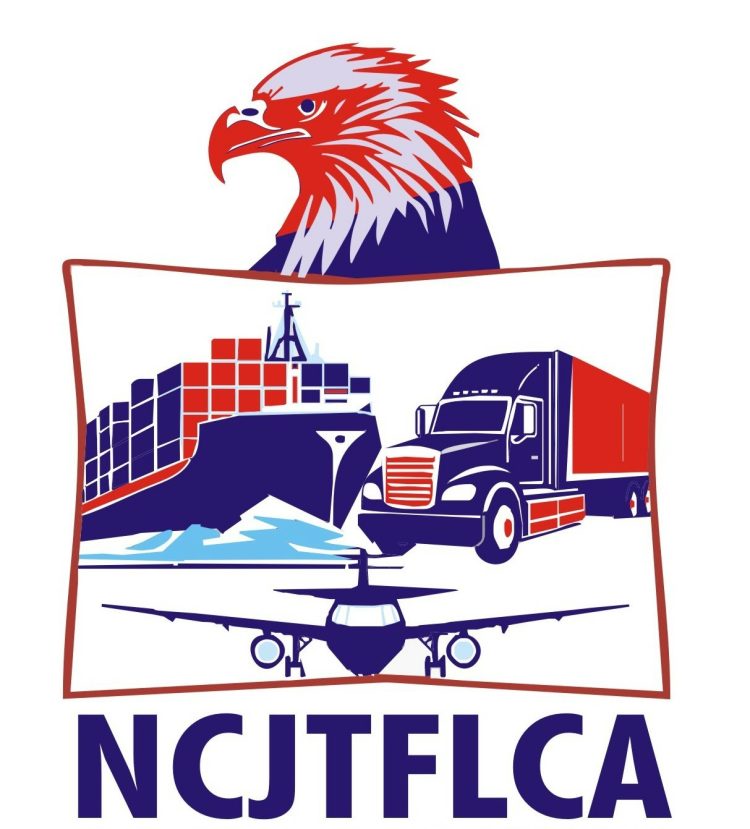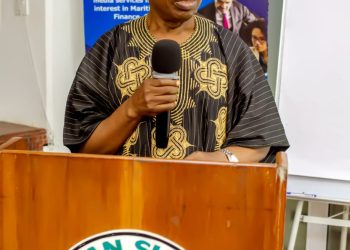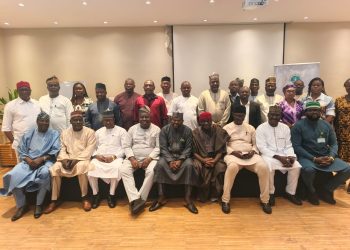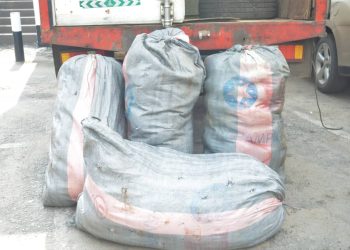Advocacy Group Alleges Continued Impunity, Fraudulent Practices by Shipping Lines in Nigeria
/The Prestige Magazine/
The National Compliance Joint Taskforce of Licensed Clearing Agents- NCJTFLCA has alleged that some international shipping lines operating in Nigeria are systematically exploiting clearing agents and importers by delaying refunds, payment confirmations, and container release.
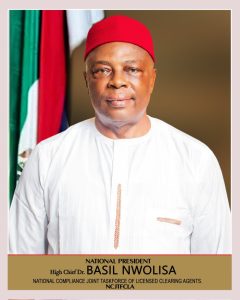
In a no-holds-barred address, Dr. Nwolisa accused major players like Maersk Line, PIL, Elder Dempster and MSC, of engineering delays that allow them to use customers’ funds to sustain internal operations.
Addressing journalists in his Lagos office, the National President of NCJTFLCA, High Chief Dr Basil Chudi Nwolisa, alleged that, “they are running business with our money, when you apply for a refund, it can take one or two months. Meanwhile, they’re using that deposit to run their own business.”
According to Dr. Nwolisa, some shipping lines operate with fewer than ten physical staff, making real-time customer service impossible. Clients are forced to rely solely on email correspondence, which often goes unanswered or delayed—especially during peak traffic.
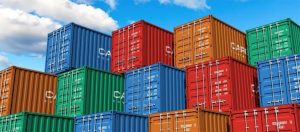
“You send an email and if it does not go through, you are ignored. If it goes through and others flood in, you’re not attended to in real time,” he lamented. “You’ll have 600 people calling just two or three lines.”
Payment confirmations, he said, can take two to three days—during which demurrage charges accrue at the importer’s cost.
Nwolisa also lamented that refunds are usually trapped in bureaucracy stating that
one of the most troubling revelations was the alleged delay and denial of container deposit refunds, particularly for clearing agents who advance funds on behalf of importers.
“You pay from your own account, and when it’s time for a refund, they’ll say you didn’t pay it—that only the importer can collect. But if you give them ₦20,000 or ₦30,000, the refund is magically processed. So who is really collecting?” he asked rhetorically.
He described the situation as a deliberate economic sabotage, warning that such delays not only affect agents but have ripple effects on the broader economy.
“Digital Blackout” and Document Tricks were also mentioned as
Dr. Nwolisa accused shipping companies of using network failure as a smokescreen to delay transactions and pile up storage charges.
“They will tell you there is no network after payment. That network failure could last for five days—five days of demurrage multiplied by thousands of containers. That is billions of naira lost,” he said.
He also condemned the document rejection system, where applications are turned down for minor errors like punctuation, only to force delays and inflate charges.
“If you make one mistake—a comma or a period—they’ll reject the letter. You’ll have to resend and wait again. It’s intentional.”
On high deposits and auction scandals,
Dr. Nwolisa shared a case in which an importer was allegedly forced to pay an ₦8 million deposit for a single container—a move he claims was designed to frustrate the importer into abandoning the goods.
“It is a racket,” he said. “Once you can’t meet the outrageous deposit, they move to auction your container. We have seen it happen more than once.”
The advocacy group calle for action, stating that it would take legal steps towards addressing the continued mindless extortion.
Dr Nwolisa confirmed that legal steps were already in motion. According to him, lawyers representing the group are preparing petitions to the National Assembly and regulatory authorities.
“We will no longer tolerate these anomalies,” Dr. Nwolisa declared. “If the shipping lines refuse to change, we have no option than to take legal action. This is not aggression—it is about getting justice.”
He further questioned the alleged ownership links between Nigerian elites and foreign shipping companies, asking whether the Nigerian people are being “suppressed by their own leaders.”
Dr. Nwolisa urged the Federal Government, Nigerian Shippers’ Council, and Ports Economic Regulator to act swiftly to prevent a total breakdown of confidence in Nigeria’s import-export system.
“Nigeria is not a banana republic,” he insisted. “We want fair business. Not harassment, not extortion. Let shipping companies be audited and made to adhere to standard practices,” Nwolisa insisted.



